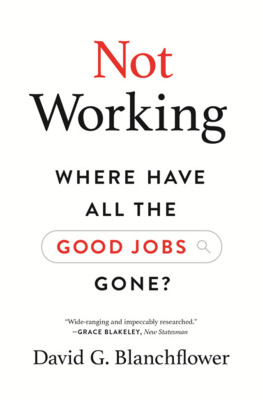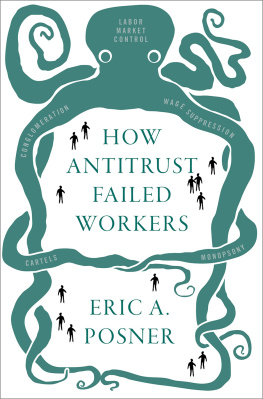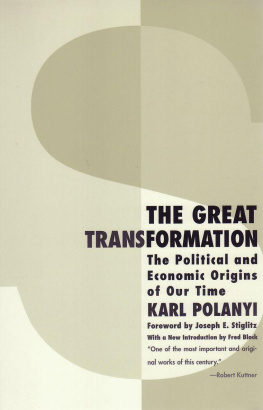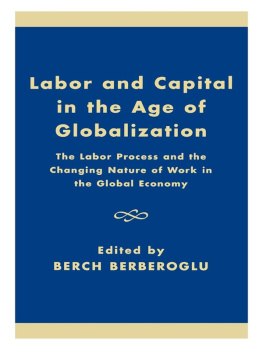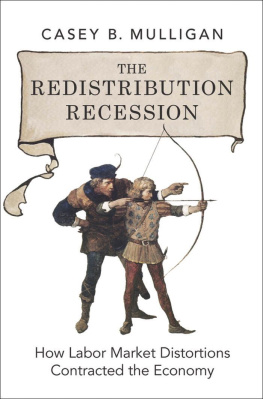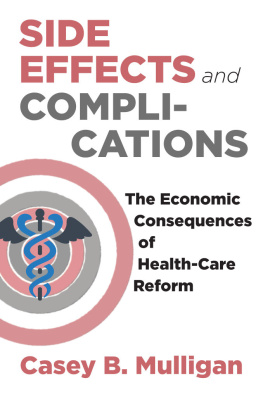Contents
Page List
Guide
More praise for
NOT WORKING
Wide-ranging and impeccably researched. The book is an excellent critique of mainstream economics that explains why many advanced economies labour markets arent working. In doing so, it identifies a number of deep-seated flaws in modern capitalism.
GRACE BLAKELEY, New Statesman
A welcome corrective to the idea that low unemployment numbers indicate rude economic health. As global growth weakens and the world gets used to what looks like a protracted trade war between the U.S. and China, the question of the lack of good jobs is not going away.
SHARON LAM, Reuters Breakingviews
A searching and incisive study of the labour market and patterns of work.
Paradigm Explorer
In this book, Blanchflower, one of the worlds most respected labour market economists, turns his attention to the long-term unemployed and disenfranchised, and explains how their plight has profound ramifications both for society and business.
People Management
In this thought-provoking study of the functioningand malfunctioningof the labor market, David Blanchflower presents a powerful analysis of one of the most important issues facing our society today: the quest for good jobs. This is a book that will be of interest to economists and policymakers around the world.
MOHAMED A. EL-ERIAN, author of The Only Game in Town: Central Banks, Instability, and Avoiding the Next Collapse
This is economics as it should be: crystal clear, persuasively argued, and enlightening on the big question of our age, namely why so many people feel the economy does not work for them even though unemployment is so low. If you care about how to fix the mess in the rich West, Blanchflowers Not Working is for you.
ROBERT PESTON, political editor, ITV News
Facts are stubborn things, even in economics. Sometimes it takes a stubborn principled economist to get the facts through the thick head of the economics profession and policymakers. Thankfully, David Blanchflower is just such a stubborn principled economist, and Not Working should finally drive home the realities of todays labor markets to the public and the officials who serve them. The research by Blanchflower underlying Not Working was first provocative, then prescient, and now is pressing for policymakers. Also thankfully, Blanchflower makes the case crystal clear.
ADAM S. POSEN, President, Peterson Institute for International Economics, and External Member of the Monetary Policy Committee of the Bank of England, 20092012
David Blanchflower is superlative at piecing together the big picturea sobering onefrom an immense amount of data, both statistical and commonsensical. We need to heed the books urgent message about another impending crisis.
NOURIEL ROUBINI, coauthor of Crisis Economics: A Crash Course in the Future of Finance
David Blanchflower, a leading labor economist, delivers two trenchant messages in this incisive book. To economists he says: look and see, not see and look. Had they looked at the numbers and not stuck to their theories, they would have seen that a big collapse was coming in 2007. His message to policymakers is look at underemployment, not the headline unemployment figures, to see the slack in the economy. Underemploymentpeople working less than they want toexplains why, contrary to all past experience, wage inflation has not taken off with the recovery of full employment. A wake-up call to both economists and policymakers.
ROBERT SKIDELSKY, University of Warwick, author of John Maynard Keynes AND Money and Government
NOT WORKING
NOT WORKING
Where Have All the Good Jobs Gone?
With a new preface by the author
David G. Blanchflower
PRINCETON UNIVERSITY PRESS
PRINCETON AND OXFORD
Copyright 2019 by David G. Blanchflower
Preface to the paperback, copyright 2021 by David G. Blanchflower Requests for permission to reproduce material from this work should be sent to
Published by Princeton University Press
41 William Street, Princeton, New Jersey 08540
6 Oxford Street, Woodstock, Oxfordshire OX20 1TR
press.princeton.edu
All Rights Reserved
Library of Congress Control Number 2020949679
First paperback edition, with a new preface by the author, 2021
Paperback ISBN 978-0-691-20549-6
Cloth ISBN 978-0-691-18124-0
British Library Cataloging-in-Publication Data is available
Editorial: Joe Jackson and Jacqueline Delaney
Production Editorial: Jill Harris
Text Design: Pamela Schnitter
Cover Design: Will Brown
Production: Erin Suydam
Publicity: James Schneider and Caroline Priday
This book has been composed in Adobe Garamond Pro and Helvetica Lt Pro
Printed in the United States of America
TO BERNARD CORRY AND MAURICE PESTON, WHO TAUGHT
ME TO DO ECONOMICS WITH A CONSCIENCE, AND TO MY
MOTHER MARY WHO DIED IN THE SUMMER OF 2020
CONTENTS
PREFACE TO THE 2021 EDITION
At the end of 2018, as I finished writing Not Working, I had no clue there was a deadly virus lurking and that a potential new Great Depression was about to hit. In the book, I note that GDP growth in the United Kingdom in the years after the Great Recession starting in 2008 was the third-slowest ever, following the South Sea Bubble financial crash three hundred years earlier, and the slowest recovery of all six hundred years ago in the aftermath of the Black Deathan unfortunate analogy, of course.
In 2020, as economies closed in March, output dropped further and more quickly than it did in the Great Recession. In the second quarter, GDP dropped 20 percent in the UK, versus 6 percent between the second quarter of 2008 and the first quarter of 2009. In most economies the drop was much bigger than in the Great Recession: 9 percent versus 3 percent in the United States, 14 percent versus 4 percent in France, with similar stories in most other places. In the United States, as individual states opened up too soon and had to reimpose restrictions, recovery started and then slowed. At the time of writing, just after the presidential election in November 2020, a third and higher wave has emerged. The good news is that three vaccines appear to be effective and are headed apace for widespread distribution, with the vulnerable, the old, and health care workers rightly first in line.
The major lessons now are not from the Great Crash or the Great Depression but from the Great Influenza. John M. Barrys book The Great Influenza has become the go-to source. The biggest lesson he drew from the Spanish flu (which did not start in Spain) is that authorities should tell the truth. The tapes from Bob Woodwards 2020 book, Rage, show that the president of the United States kept the truth about the virus from the American people, presumably with serious consequences.
In the United States and the UK in particular, the unemployment rate fell below 5 percent in 2018. In the past this would have indicated an uptick in wage growth, signaling what I explain in the book as the concept of full employment. That didnt happen. In the book, youll see how both countries were nowhere near full employment. Underemployment, in which workers cannot get enough hours, keeps pay in check, was high. Sadly, the U.S. Federal Reserves estimates of full employment were wrong. Between 2015 and 2018, anticipating inflation from raising wages, it raised interest rates. In August 2020, at the Feds Jackson Hole conference, Chairman Jay Powell had to backtrack and shift the Feds inflation goal to keep rates lower for longer. He explained why as follows:

